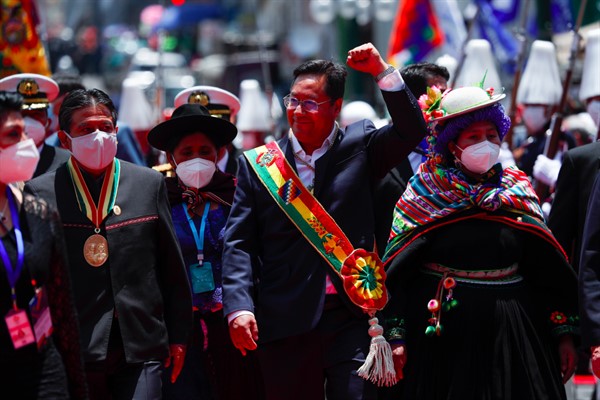Luis Arce Catacora was sworn in as Bolivia’s new president last weekend, two weeks after he and his vice president, David Choquehanca Cespedes, won decisively in long-delayed general elections. Their victory marked a return to power for the Movement for Socialism—the political party of former President Evo Morales, known as the MAS—and an end to a year of unrest and political turmoil that followed Morales’ ouster in the wake of disputed elections.
Lawmakers—almost all of them wearing face masks—packed into the National Assembly building to hear Arce’s inaugural address, in which he promised to govern for all Bolivians. “We want a government for all without discrimination of any kind,” he said. Working-class and Indigenous Bolivians across the country celebrated the occasion.
The next day, Morales made a triumphant return to his home country from Argentina, where he had been living in exile. After a sendoff at the border from Argentine President Alberto Fernandez, he crossed Bolivia in a convoy that stopped every few miles to greet local Indigenous farmers. Tens of thousands of cheering fans awaited him in the coca-growing Chapare province, a sign that Morales, the first Indigenous Bolivian to lead the country, continues to enjoy a strong base of support. “We’re in power now,” he announced.

